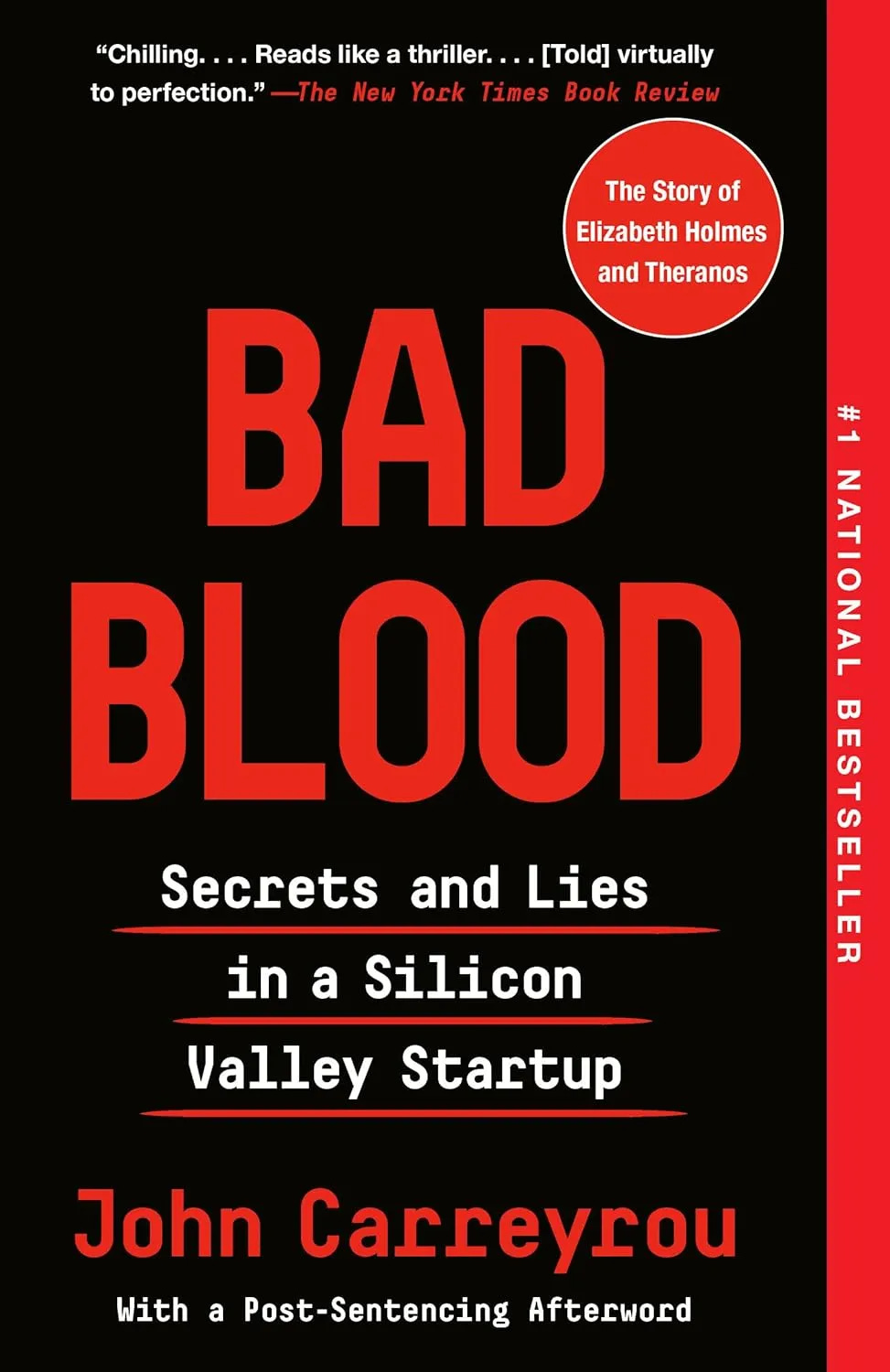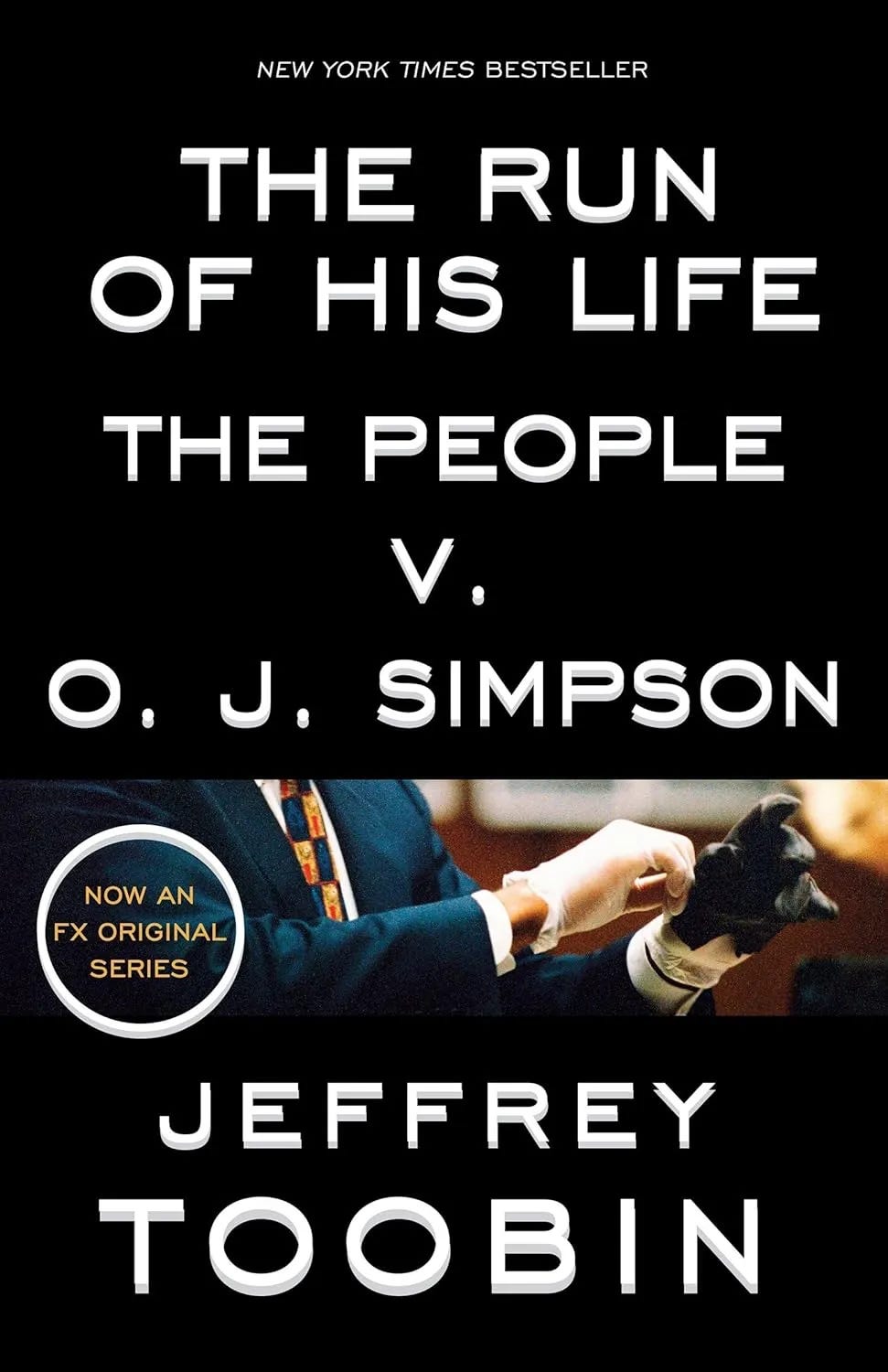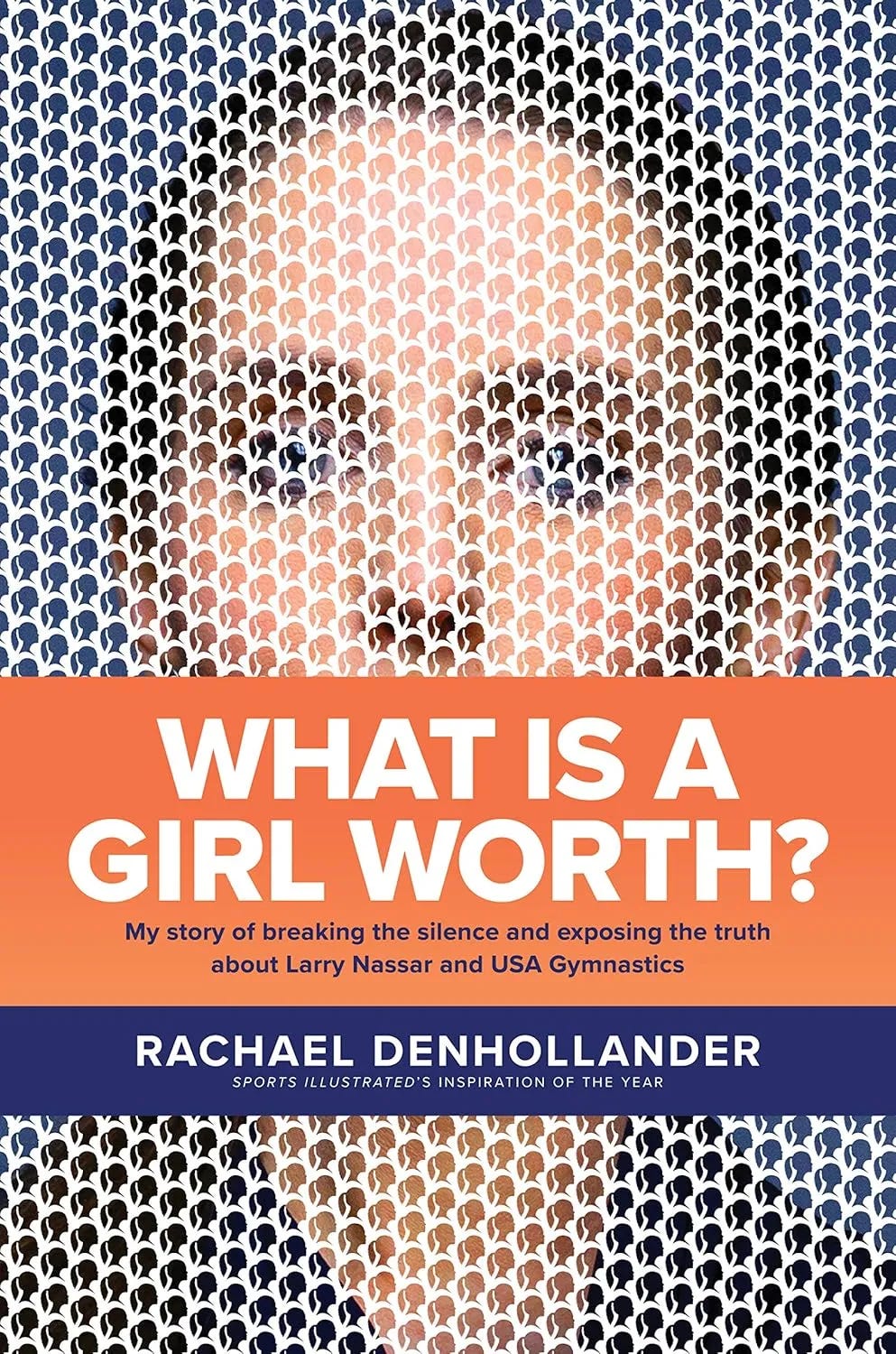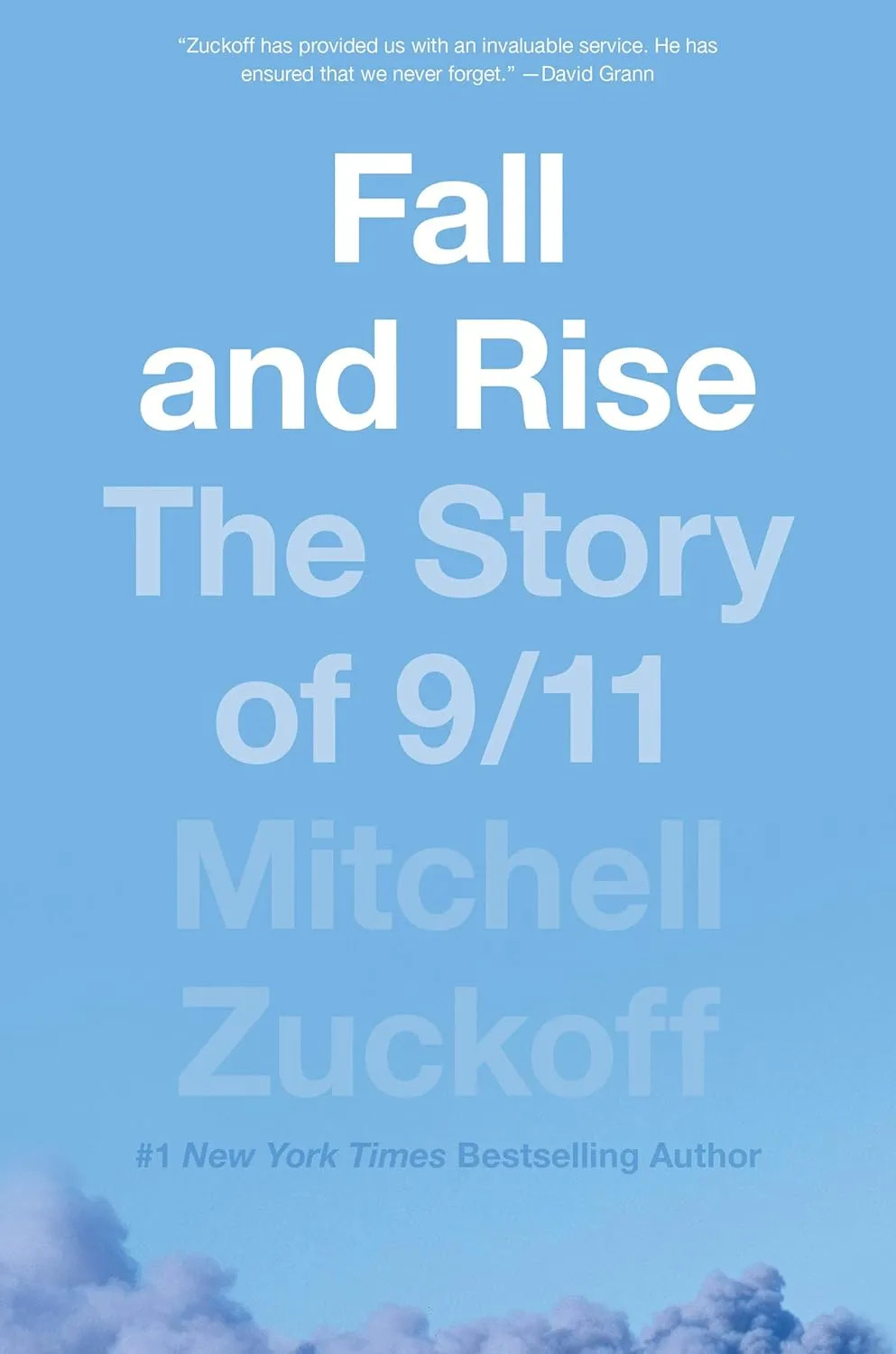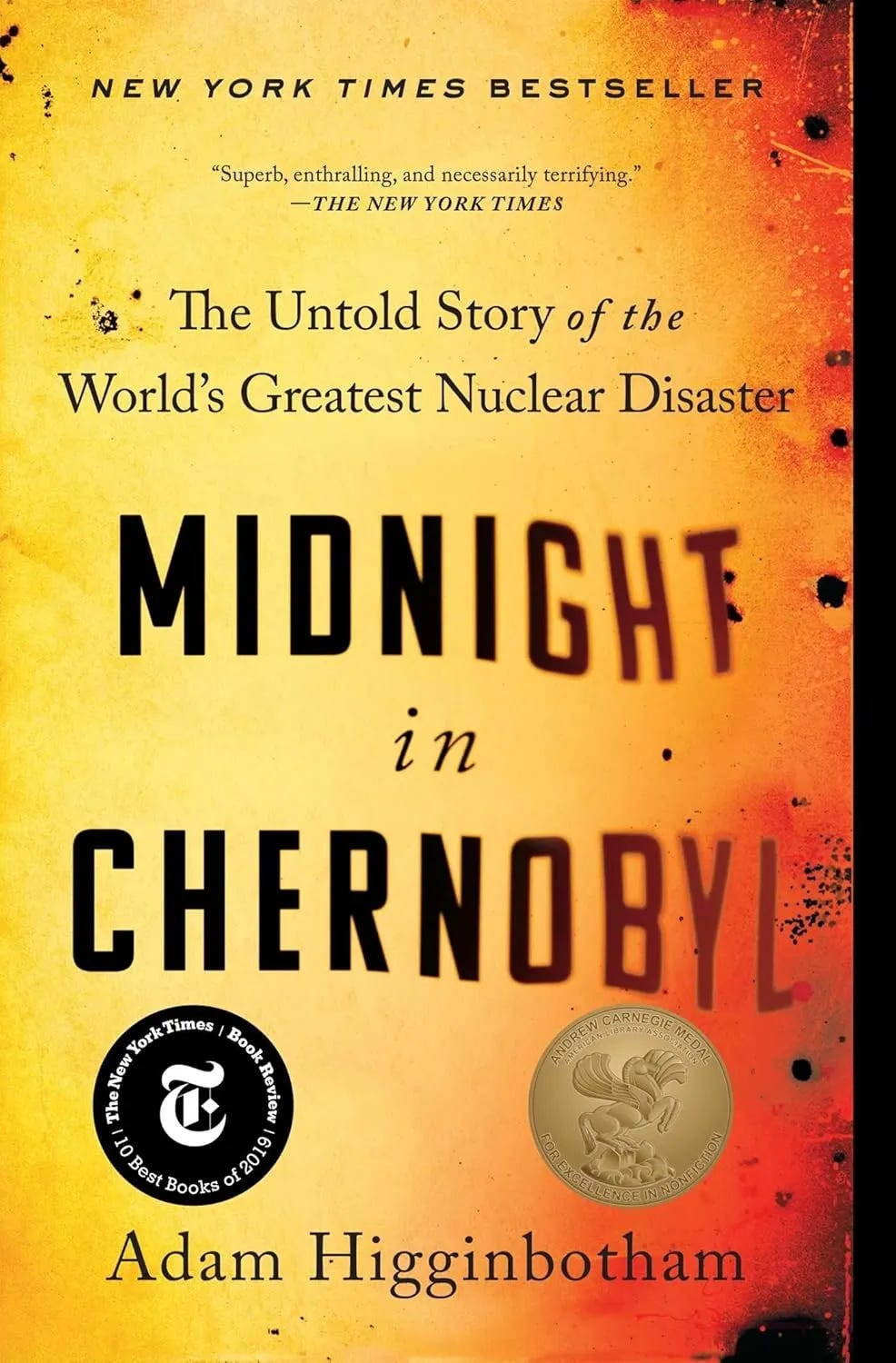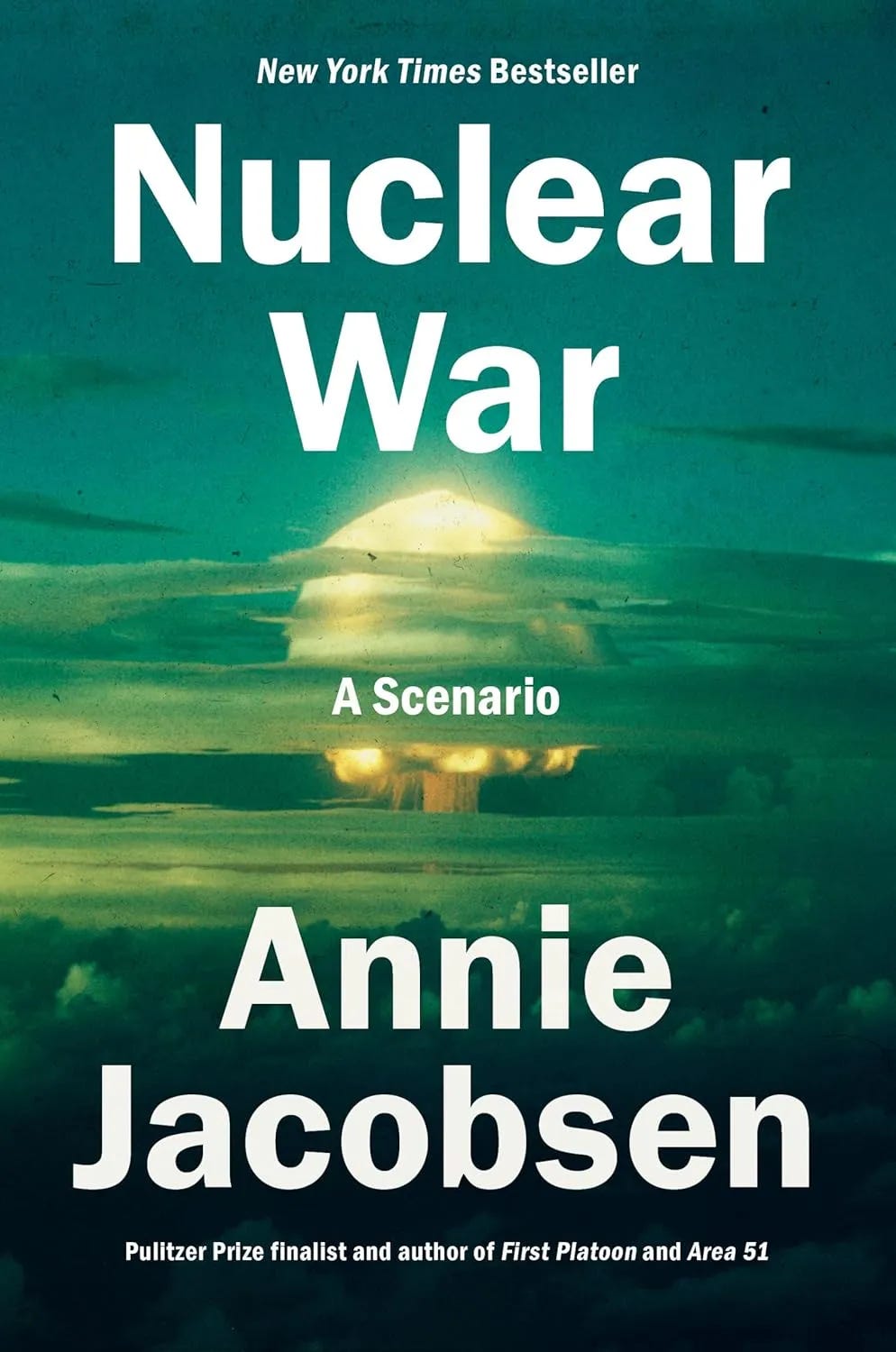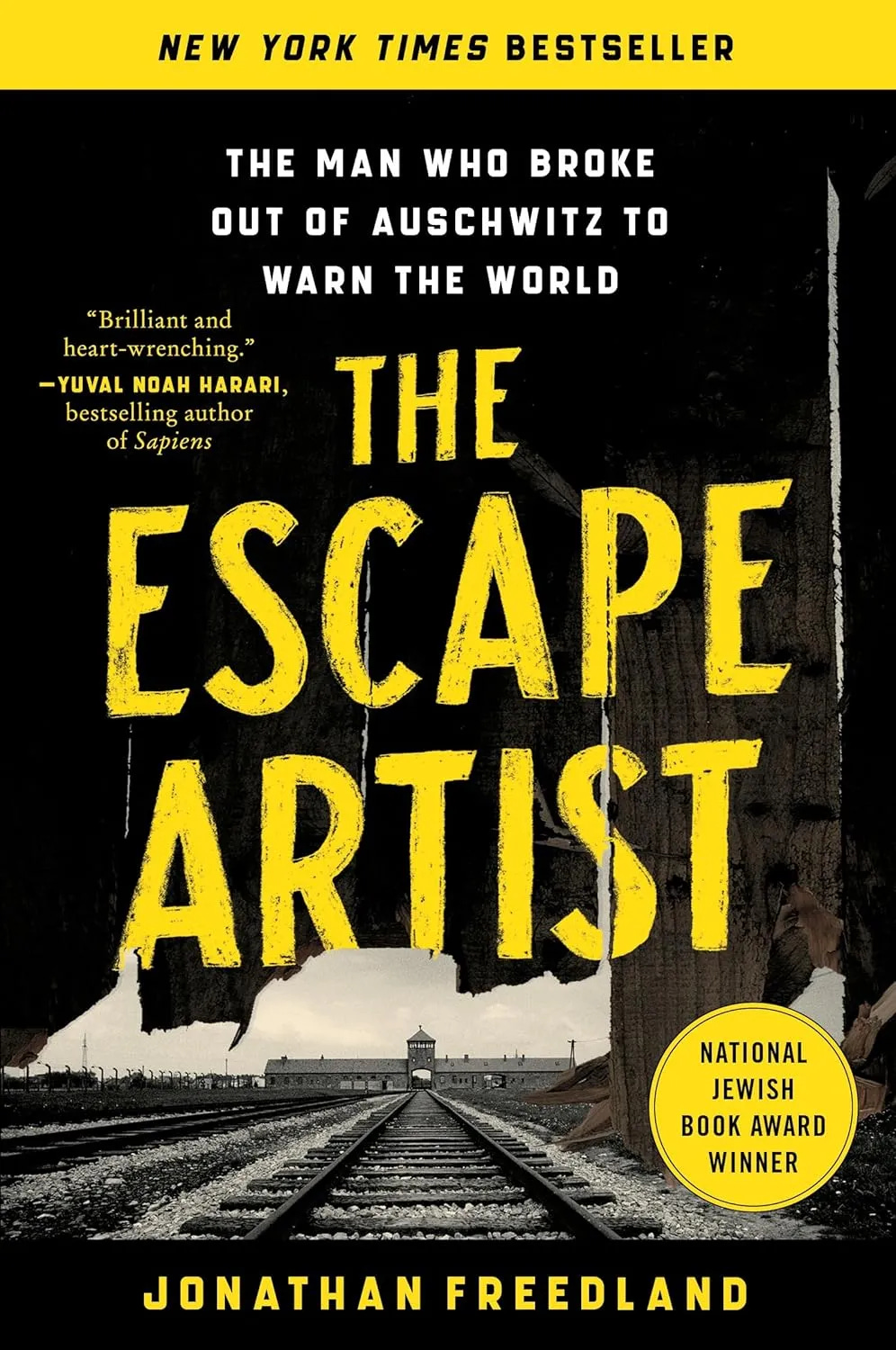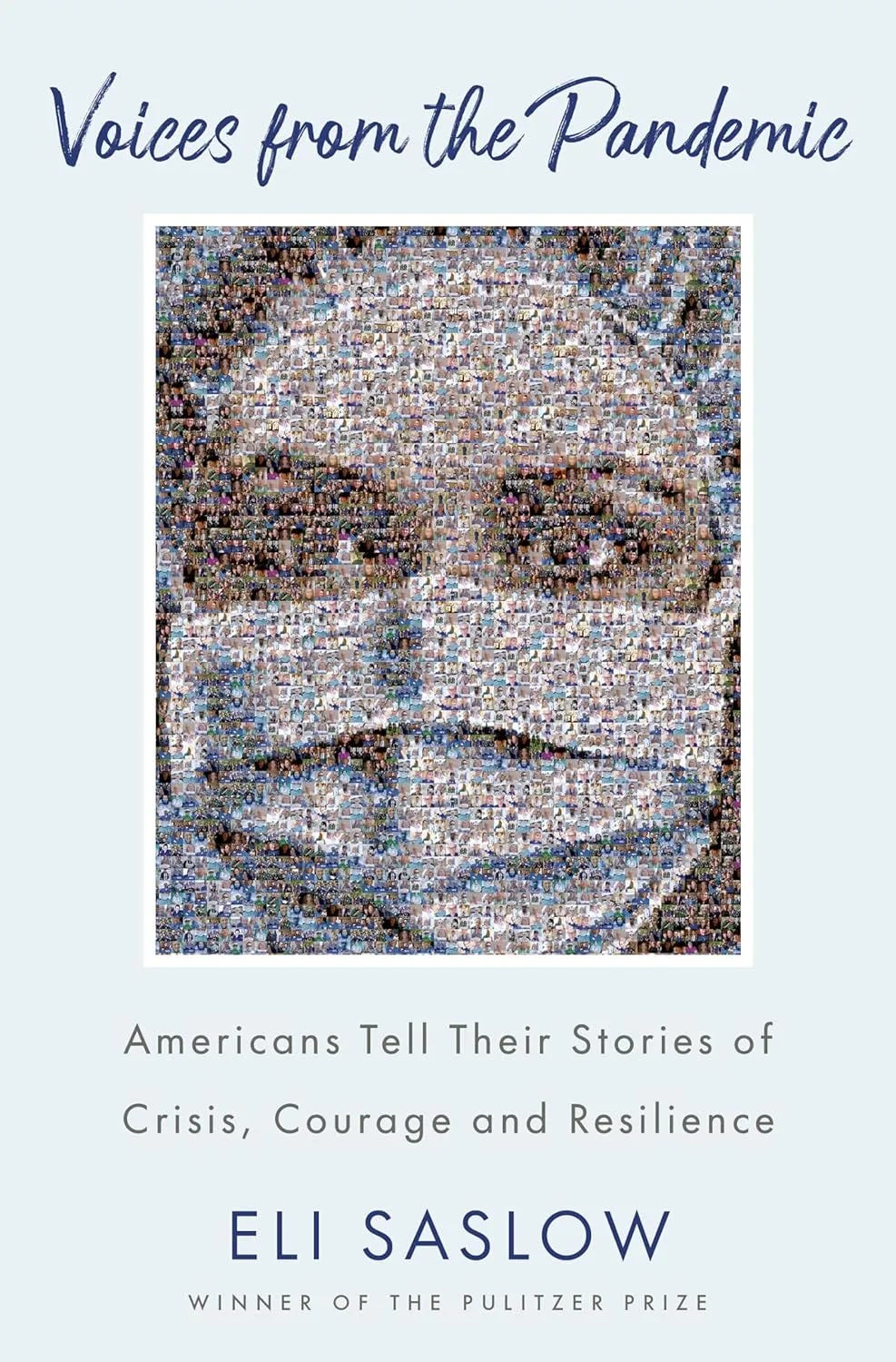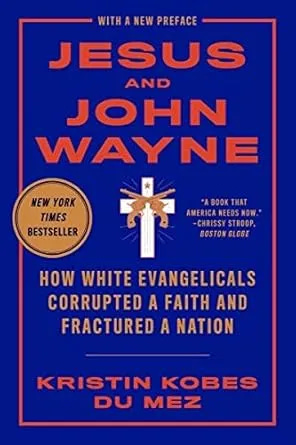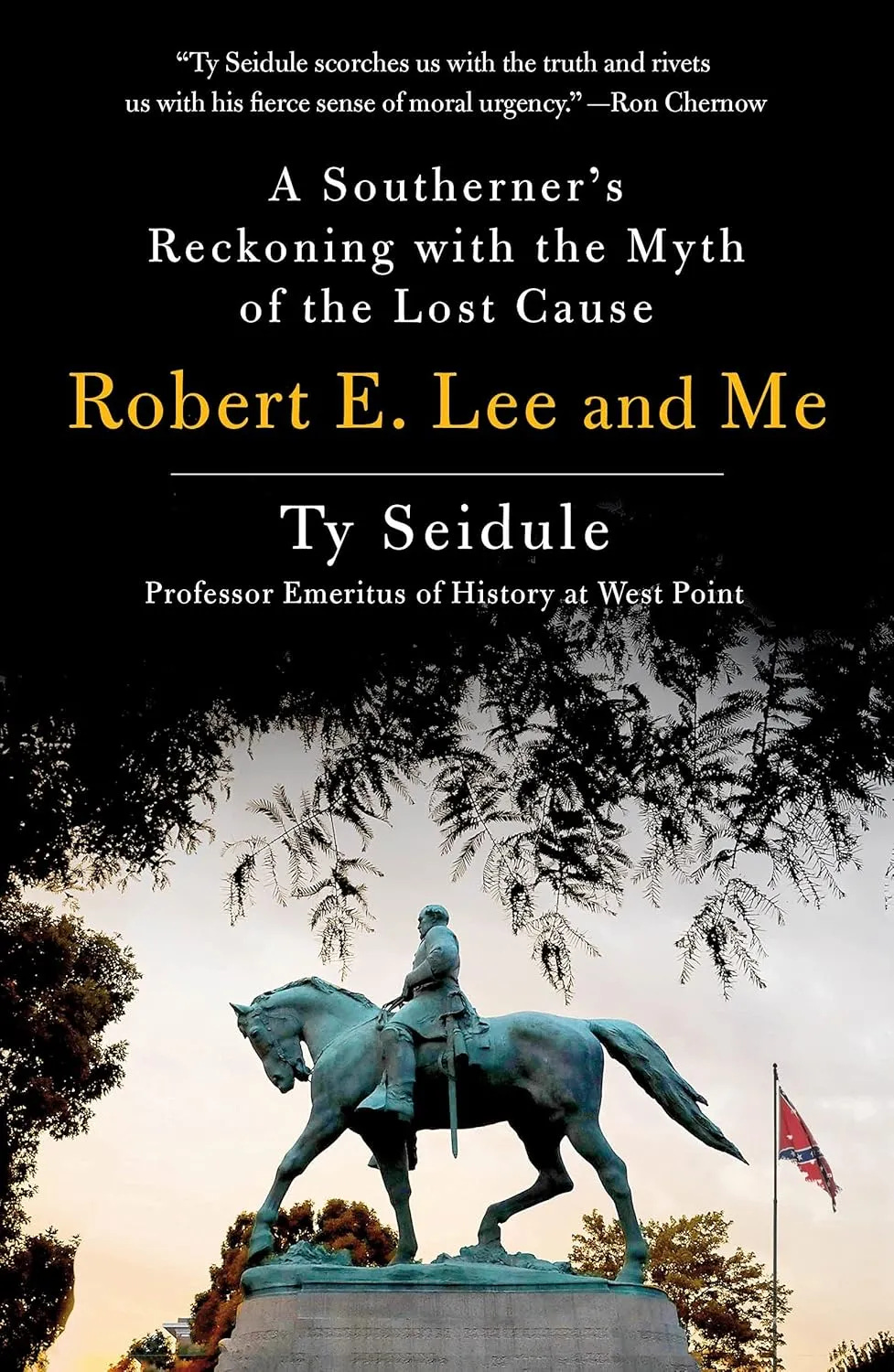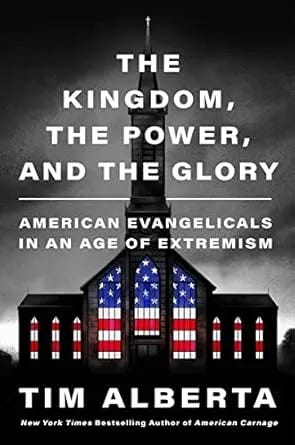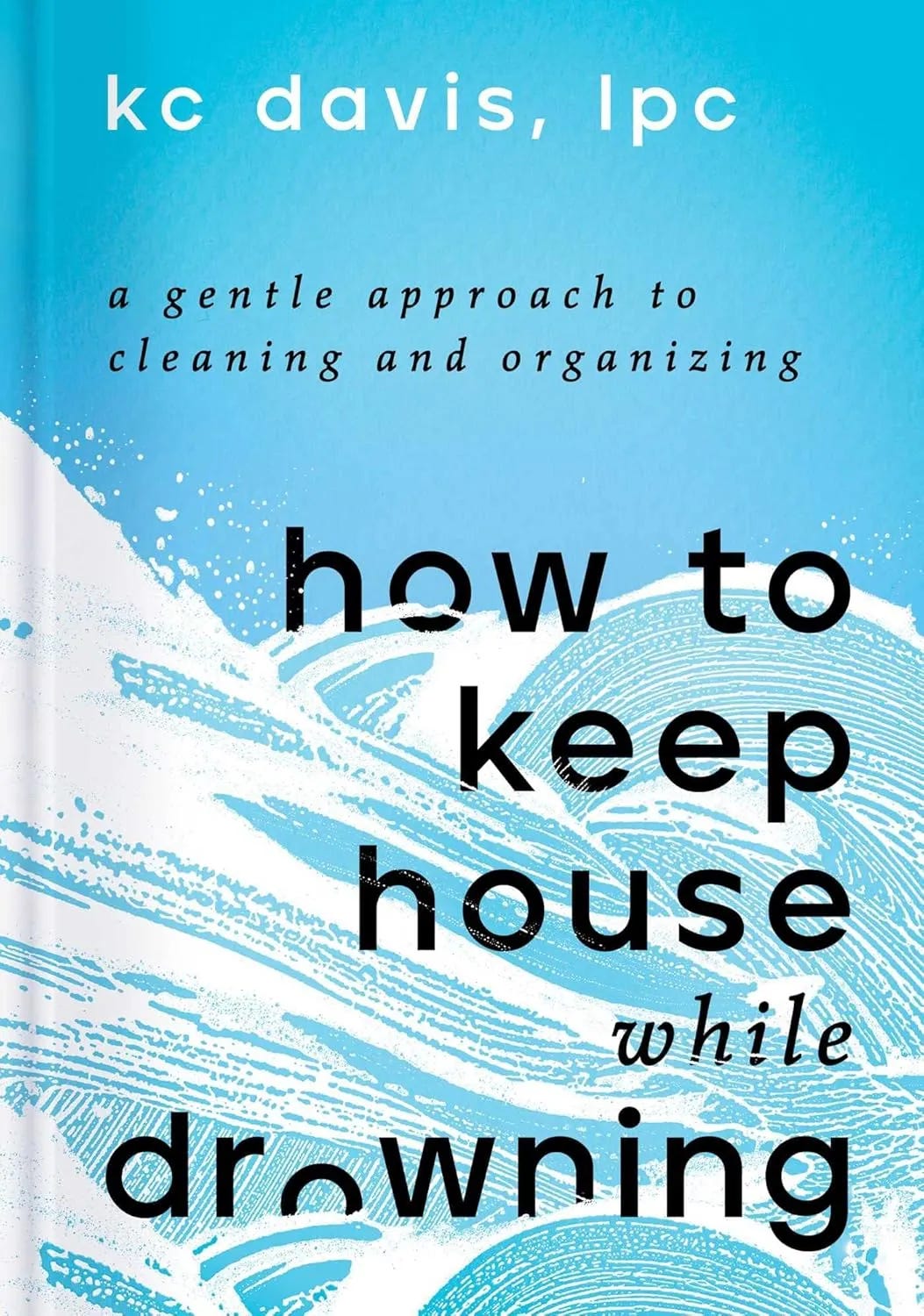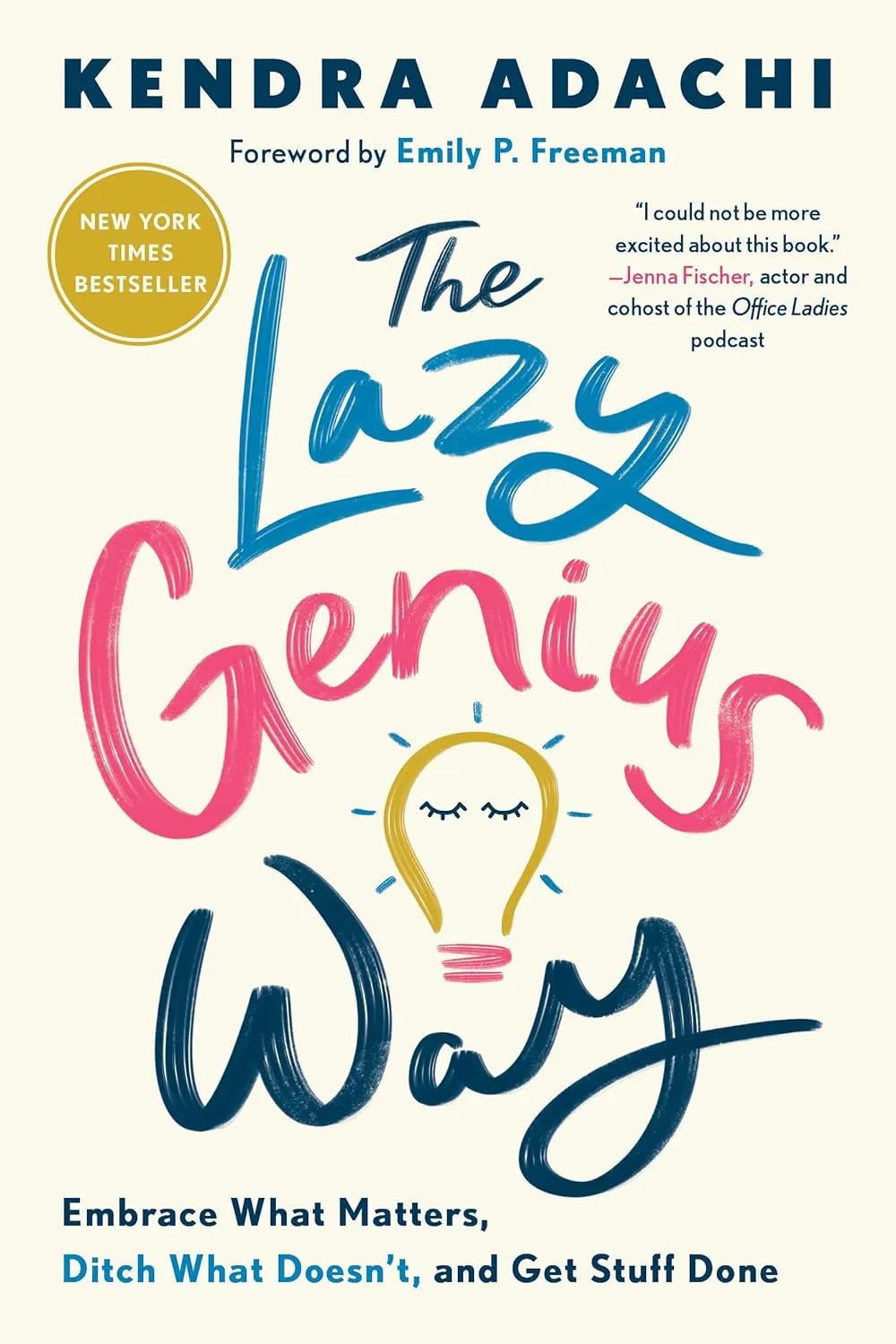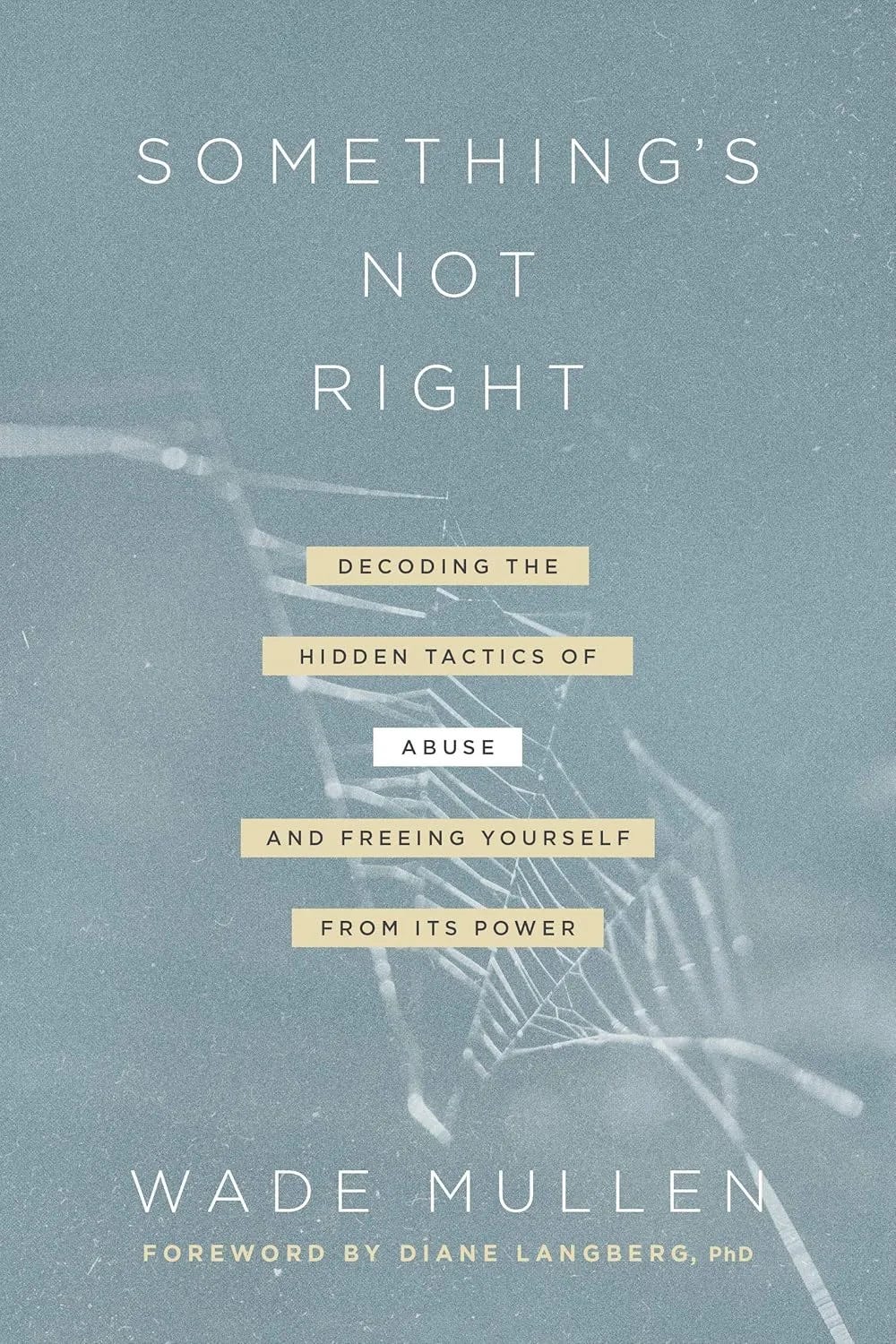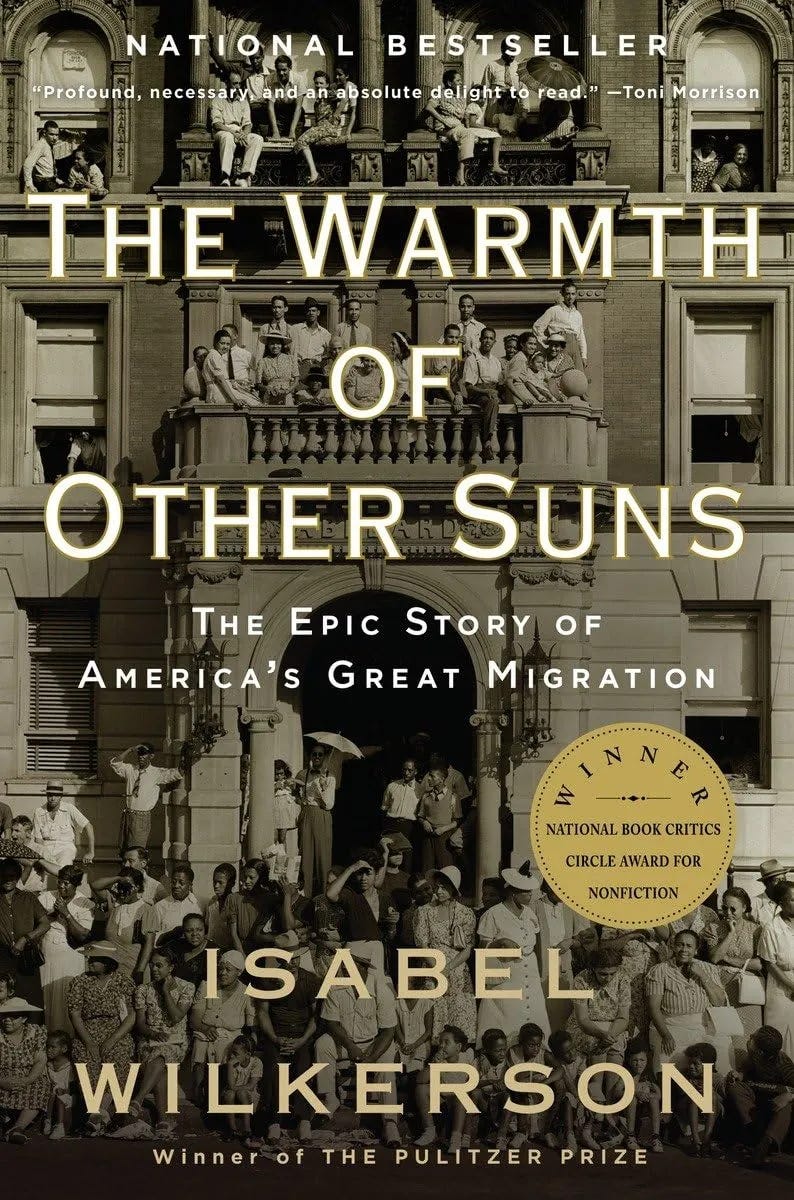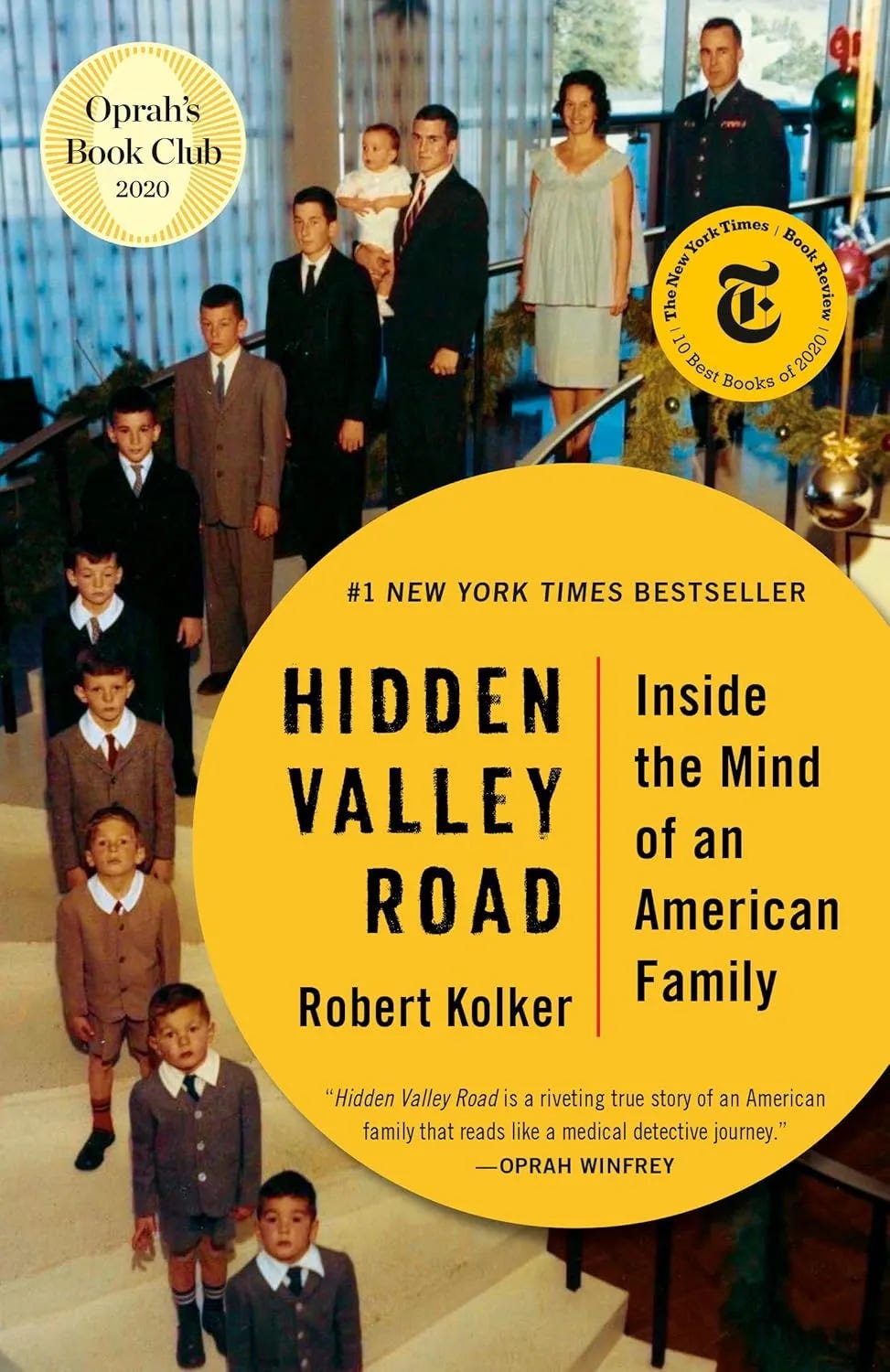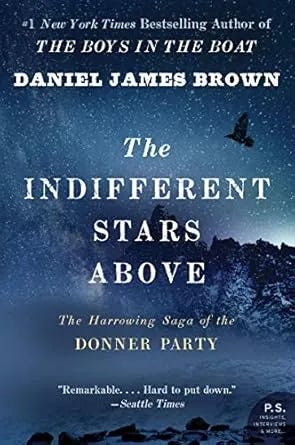My 20 Favorite Nonfiction Books
If you’re looking for other lists of nonfiction books I’ve liked, here are a few:
This post has taken me forever to write because it was so difficult to pick my 20 favorite. I started with the list of all the 5-star nonfiction books I’ve ever read and then went from there. As I was working on the post I thought of many other books that should have made this list, but I just had to keep what I had already chosen.
Note that this list does not include anything that would be considered a memoir, because in my head that’s a whole different category that deserves its own post (coming at some point in the future). It also doesn’t include books that are written from a decidedly Christian perspective, although some of the books on this list do touch on religion as it relates to American culture.
I’ve broken the books down into rough divisions. As always, I’d love to know if you’ve read any of these!
🔍 Investigative Journalism
📖 Bad Blood: Secrets and Lies in a Silicon Valley Startup by John Carreyrou
I read this book way back in 2019 when I really started reading again, and it showed me that narrative nonfiction is one of my favorite subgenres of nonfiction. This book reads like fiction mostly because it seems like it couldn’t possibly have happened this way, and yet it was meticulously researched and confirmed by later legal proceedings. Whether you’re familiar with Elizabeth Holmes and Theranos or not, this is a page turner.
📖 The Run of His Life: The People v. O.J. Simpson by Jeffrey Toobin
This was my first Jeffrey Toobin book and since I read this one, I think I’ve read everything he has ever written. His writing is to me the epitome of solid investigative journalism. I really knew very little about the O.J. Simpson trial because I was a child when it happened. I just remember watching the car chase on TV in my living room and not really understanding what was happening but seeing that my parents were very worked up.
📖 What Is a Girl Worth?: My Story of Breaking the Silence and Exposing the Truth about Larry Nassar and USA Gymnastics by Rachel Denhollander
This one is part investigative journalism, part memoir, but I put it here because it covers a story that was all over the news and had so much coverage. The author was herself abused by Larry Nassar as a child gymnast, but it wasn’t until she was an adult and other victims came forward that she got involved on the legal side of things. Her courage and tenacity in the face of people telling her to stop was incredible. It is also a vivid picture of what institutional abuse looks like and how easy it is for powerful people and organizations to cover things up.
🌋 Catastrophic Historical Events
📖 Fall and Rise: The Story of 9/11 by Mitchell Zuckoff
I still remember reading this book over the course of only a few days when I was pregnant with Noah. I had awful morning sickness, I was having to go to our oldest’s sports events and it was so hot, and I wanted to die. Finally one Saturday I crashed and just laid in bed all day and read this book. This book is written chronologically so it jumps around from plane to plane to tower to Pentagon as things happened, making it an especially painful read, because we all know what happens eventually.
📖 Midnight in Chernobyl: The Untold Story of the World's Greatest Nuclear Disaster by Adam Higginbotham
I covered the author’s newest book Challenger in my March 2025 Reads, and it was because I had read this book that I even picked up the book about Challenger, because usually I’m not interested in space. Midnight in Chernobyl was so fascinating and the way the story was told (again, narrative nonfiction) was so compelling that I now trust this author almost implicitly. I don’t know anything about nuclear reactors or radiation but I didn’t need to because the author did an excellent job explaining the important parts of what led to the Chernobyl disaster. It also tells the story of real people who were affected and the heartbreaking results of the disaster. The TV series Chernobyl is based on this book and is also worth watching (I’ve seen it twice).
📖 Nuclear War: A Scenario by Annie Jacobsen
I already mentioned this book in My Top 10 Reads of 2024, so you can read more about it there. Here’s what I wrote:
This book is perfect if you’re feeling a little too happy and optimistic about life and want to be taken down a notch or two. It is dark. There is no happy ending. It is a nonfiction book, but the author sets up a scenario in which North Korea has sent a nuclear bomb to the United States. She outlines what would happen after that and describes in excruciatingly detail the effect of radiation on people and the earth in general. If you’re wondering why in the world anyone would want to read this, then this book is probably not for you. But I couldn’t put it down.
📖 The Escape Artist: The Man Who Broke Out of Auschwitz to Warn the World by Jonathan Freedland
This was already mentioned in my post 10 Nonfiction Books I Loved in 2024. Here’s what I wrote:
If you don’t already know this about me, it will not take you long to find out that I have read many books about the Holocaust. It was somewhat of an obsession when I was a child, which probably means something, and I haven’t lost interest after 30 years. However, despite all the reading I’ve done, I had never heard the story of this man who escaped from Auschwitz (which almost no one did and survived). For those who might think nonfiction is boring, this kind of book will hopefully change your mind. It doesn’t feel like nonfiction; it reads like a non-stop adventure story (with lots of heartache given that he’s trying to escape a concentration camp).
📖 Voices from the Pandemic: Americans Tell Their Stories of Crisis, Courage and Resilience by Eli Saslow
I think this is an important book for anyone who is old enough to remember 2020. While we were all experiencing a global pandemic, the individual experiences were so different. This book covers situations and perspectives that were mostly alien to my own experience of the early months of the pandemic, and I always find myself reflecting back on books that expanded my mind. I also think this book is an important historical artifact. Our daughter, Zoe, turned 3 in the spring of 2020 and doesn’t remember anything of masks or staying at home. One day, a book like this will be good for her to read to understand what was going on then.
🗽 Living in America
📖 Jesus and John Wayne: How White Evangelicals Corrupted a Faith and Fractured a Nation by Kristin Kobes du Mez
This was the first book I ever read on Christian nationalism, and the way the author traces Christian opposition to Communism in the 50s and 60s to the things evangelicals are “against” today is fascinating.
📖 Robert E. Lee and Me: A Southerner's Reckoning with the Myth of the Lost Cause by Ty E. Seidule
I read this book in the height of all the conversations about race during the pandemic, and I learned things that I had never been taught in school. It helped me understand the rhetoric I was hearing coming from many conservatives, and while I also consider myself politically conservative, this book provides the nuance that I think we all need to consider when talking about Southern history.
📖 The Kingdom, the Power, and the Glory: American Evangelicals in an Age of Extremism by Tim Alberta
If you want to read a book about Christian nationalism, this is it. I think this is the best one because it’s written by a Christian, an “insider,” if you will, although the author is not a Christian nationalist. He understands what the Bible actually says and highlights the differences between Scripture and what many evangelicals today are actually saying.
📖 This Is All I Got: A New Mother’s Search for Home by Lauren Sandler
This is the story of a single mother trying to take care of her child. It highlights the complexity of the welfare system and the Kafakesque struggles that face those below the poverty line. It opened my eyes to the plight of people in these lose-lose situations.
🧠 Trauma, Mental Health, and Personal Development
📖 The Anxiety Audit: Seven Sneaky Ways Anxiety Takes Hold and How to Escape Them by Lynn Lyons
It is not an understatement to say that this book changed my life. I first listened to it on audiobook, and I vividly remember listening while I was chopping vegetables for dinner and literally pausing with the knife in my hand because she said something that I had never considered about anxiety. I almost immediately purchased the physical copy of the book, and I have gone on to recommend this to so many people. My mom as well as my closest friends have all read it and I have yet to find anyone who wasn’t greatly impacted by the common sense way the author approaches anxiety. Her podcast Flusterclux is also great (even if you’re not a parent).
📖 How to Keep House While Drowning: A Gentle Approach to Cleaning and Organizing by K.C. Davis
What Lynn Lyons is to anxiety, K.C. Davis is to house cleaning. This is a short book, and I’d recommend the physical version because of the lists and diagrams. To this day when I am approaching a messy area I consider the 5 categories of things that she says describes everything in any room: trash, laundry, dishes, things that have a home there, and things that don’t have a home. This has been helpful to teach to my kids. Also, she is so full of compassion and grace for people who are in seasons where staying on top of house work is hard. After reading this book, a burden was removed from me that I have yet to pick back up.
📖 The Lazy Genius Way: Embrace What Matters, Ditch What Doesn't, and Get Stuff Done by Kendra Adachi
Lynn Lyons, K.C. Davis, and Kendra Adachi are the three women who have truly changed my thinking through their books. I reread this book almost every year on my personal retreat because it continues to be such a straightforward way to approach everything. Her #1 principle is “Name what matters,” and I still say that to myself all the time. I highly recommend this book as a gift for any female friend who is struggling with literally anything.
📖 Something's Not Right: Decoding the Hidden Tactics of Abuse--and Freeing Yourself from Its Power by Wade Mullen
I have read many, many books on emotional and spiritual abuse, and this remains at the top of the list. It helped me understand past experiences I have had and gave me the right vocabulary to talk to other people who are in abusive situations.
What Happened To You?: Conversations on Trauma, Resilience, and Healing by Oprah Winfrey
I remember when I recommended this book to my mom. “Oprah Winfrey?” she questioned. “Like, the Oprah Winfrey?” I told her yes, the one and only, and I was as surprised as she was that Oprah had written such a powerful book about trauma. There is a story in this book about a young lady who is experiencing physical symptoms that a wise doctor eventually connects to something very unexpected, simply by finally asking her about things that have happened in her past. This was one of the first books I ever read on trauma and I don’t think it’s an exaggeration to say that it was life-changing. Now, talk of past trauma and its effect on the body is all over the place, but this was the first place I encountered it.
📚 Other Historical Nonfiction
📖 The Warmth of Other Suns: The Epic Story of America's Great Migration by Isabel Wilkerson
I keep saying how all these books are my favorite, which is pretty dumb since this is a list of my 20 favorite nonfiction books. Of course I like this one! There is a reason this book won the Pulitzer Prize, and I think everyone should read this book and every teacher of American history should include the Great Migration when teaching about the 20th century. I knew truly nothing about it until I read this book, and I think that is a shame.
📖 Hidden Valley Road: Inside the Mind of an American Family by Robert Kolker
As the quote on the front says, this is essentially a medical mystery book, only it is about an actual family. Many of the children end up suffering from schizophrenia, and seeing the impact on the entire family at the time when it was taking place is both tragic and fascinating.
📖 The Indifferent Stars Above: The Harrowing Saga of the Donner Party by Daniel James Brown
This might be my very favorite nonfiction book. Yes, it is about the Donner Party who everybody associates with cannibalism. That’s part of the story, but it is only a very small part, and the story of what got them to that point is fascinating. This was the book that made me realize how powerful narrative nonfiction is. I never would have picked up a book about the mid-1800s and didn’t care about people migrating West beyond having played The Oregon Trail on my dad’s work computer as a child. This book changed that, and it will forever be one of my top recommendations (to people who think they can handle it).
As I finish this post, it is obvious that I really like books about disasters, death, and mental health. That tracks.


